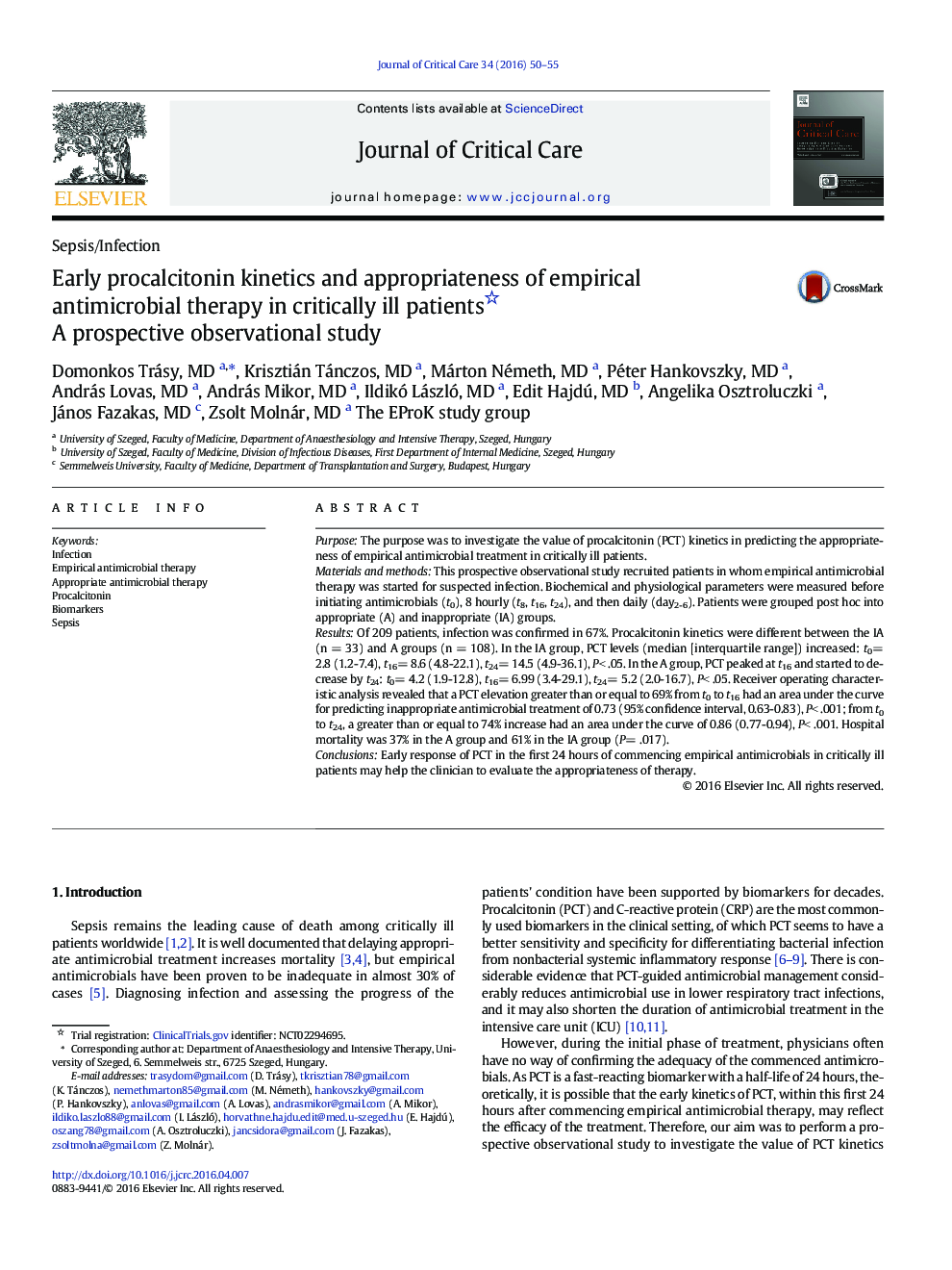| Article ID | Journal | Published Year | Pages | File Type |
|---|---|---|---|---|
| 5885117 | Journal of Critical Care | 2016 | 6 Pages |
PurposeThe purpose was to investigate the value of procalcitonin (PCT) kinetics in predicting the appropriateness of empirical antimicrobial treatment in critically ill patients.Materials and methodsThis prospective observational study recruited patients in whom empirical antimicrobial therapy was started for suspected infection. Biochemical and physiological parameters were measured before initiating antimicrobials (t0), 8 hourly (t8, t16, t24), and then daily (day2-6). Patients were grouped post hoc into appropriate (A) and inappropriate (IA) groups.ResultsOf 209 patients, infection was confirmed in 67%. Procalcitonin kinetics were different between the IA (n = 33) and A groups (n = 108). In the IA group, PCT levels (median [interquartile range]) increased: t0= 2.8 (1.2-7.4), t16= 8.6 (4.8-22.1), t24= 14.5 (4.9-36.1), P< .05. In the A group, PCT peaked at t16 and started to decrease by t24: t0= 4.2 (1.9-12.8), t16= 6.99 (3.4-29.1), t24= 5.2 (2.0-16.7), P< .05. Receiver operating characteristic analysis revealed that a PCT elevation greater than or equal to 69% from t0 to t16 had an area under the curve for predicting inappropriate antimicrobial treatment of 0.73 (95% confidence interval, 0.63-0.83), P< .001; from t0 to t24, a greater than or equal to 74% increase had an area under the curve of 0.86 (0.77-0.94), P< .001. Hospital mortality was 37% in the A group and 61% in the IA group (P= .017).ConclusionsEarly response of PCT in the first 24 hours of commencing empirical antimicrobials in critically ill patients may help the clinician to evaluate the appropriateness of therapy.
